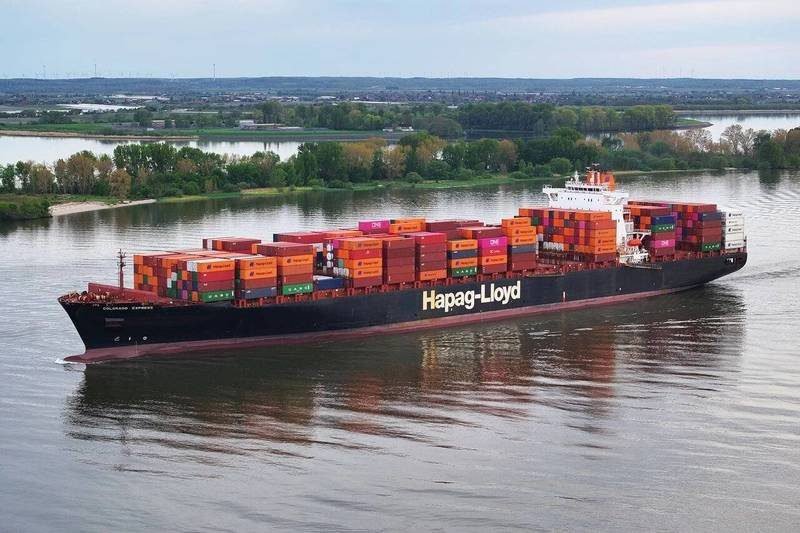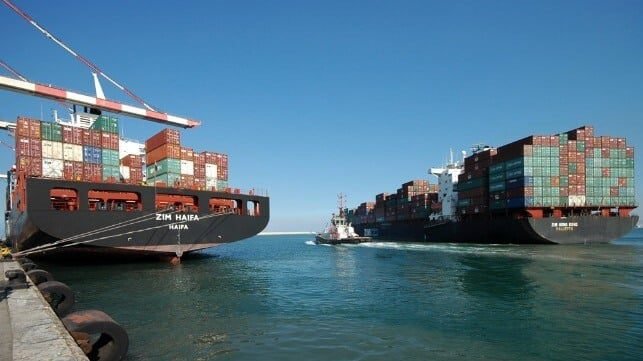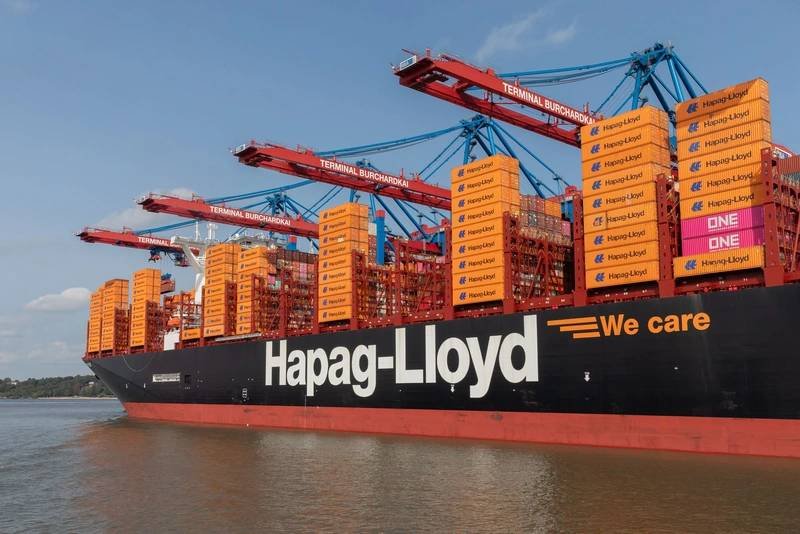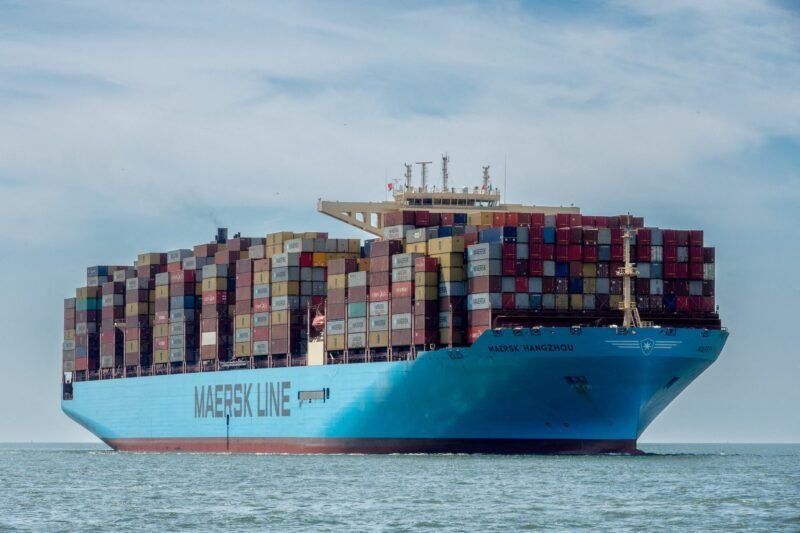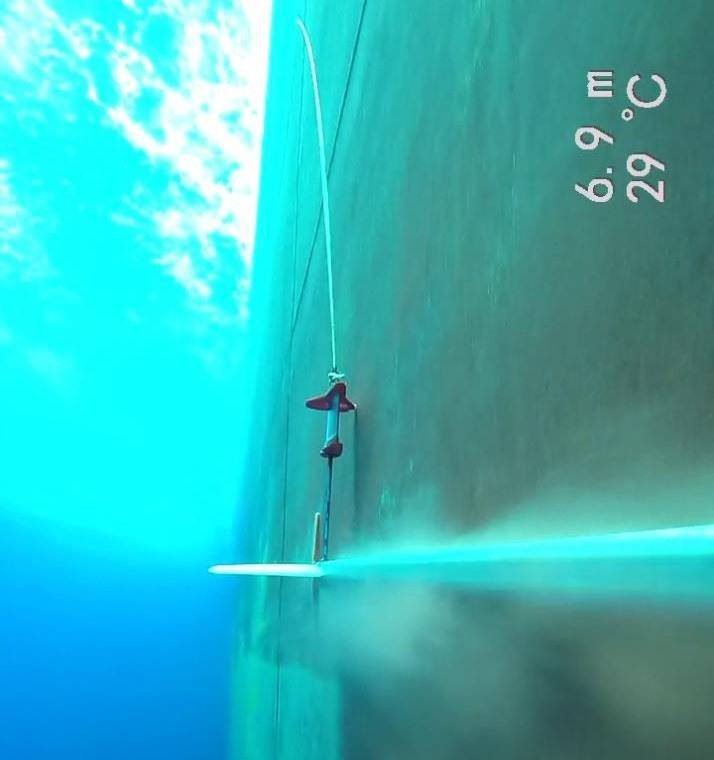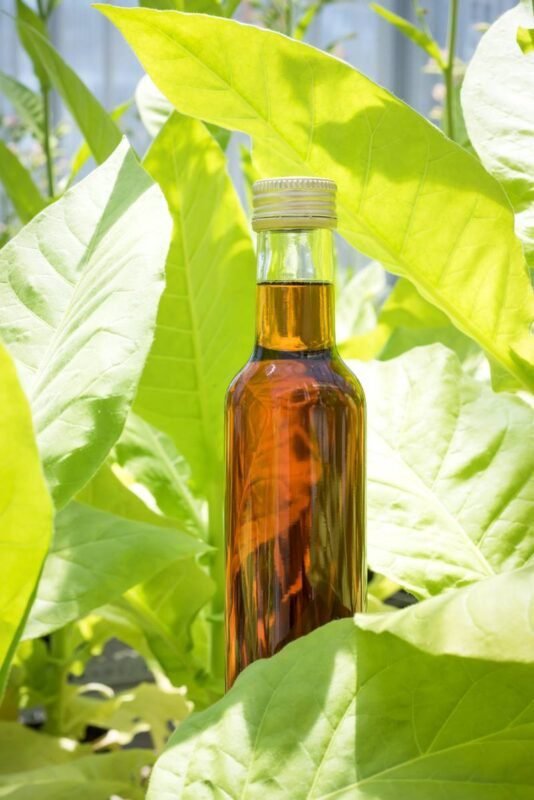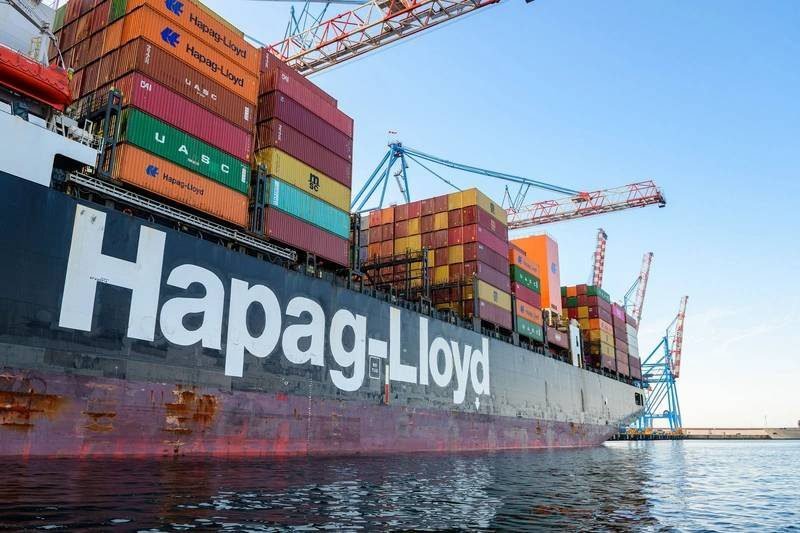Hapag-Lloyd’s vessel Colorado Express recently bunkered a B25 bio marine fuel blend containing ExxonMobil’s bio fuel, which offers a 20.1% reduction in greenhouse gas emissions compared to traditional marine fuel formulations. This fuel blend consists of ExxonMobil’s Premium HDME 50 fuel with 0.10% sulfur Emission Control Area (ECA) fuel and waste-based fatty acid methyl esters (FAME) derived from used cooking oil methyl ester (UCOME). The blend meets ISO 8217:2017 requirements, except for the FAME component, and is certified as meeting sustainability standards under RED II.
Prior to delivery in Antwerp, ExxonMobil’s bio marine fuel blend underwent various tests to ensure its quality and compliance with regulations. The receiving vessel, equipped with a Wärtsilä 10RT-flex96C main engine, successfully bunkered 1,320 metric tonnes of the blend. Hapag-Lloyd aims to achieve net-zero carbon fleet operations by 2045 and is committed to incorporating new bio blends into its fuel mix to support decarbonization efforts.
The Colorado Express used the bio marine fuel blend without any issues, with both NOx and particulate emissions remaining within acceptable limits. ExxonMobil has expanded its range of ‘drop-in’ bio marine fuel blends to include B25 ULSFO, B30 VLSFO, B7 MGO, and B10 HSFO, providing customers with options to meet their engine operations and greenhouse gas emission reduction goals. Hapag-Lloyd’s positive experience with the bio-ULSFO blend on the Colorado Express indicates a potential increase in bio-ULSFO consumption in the future.


